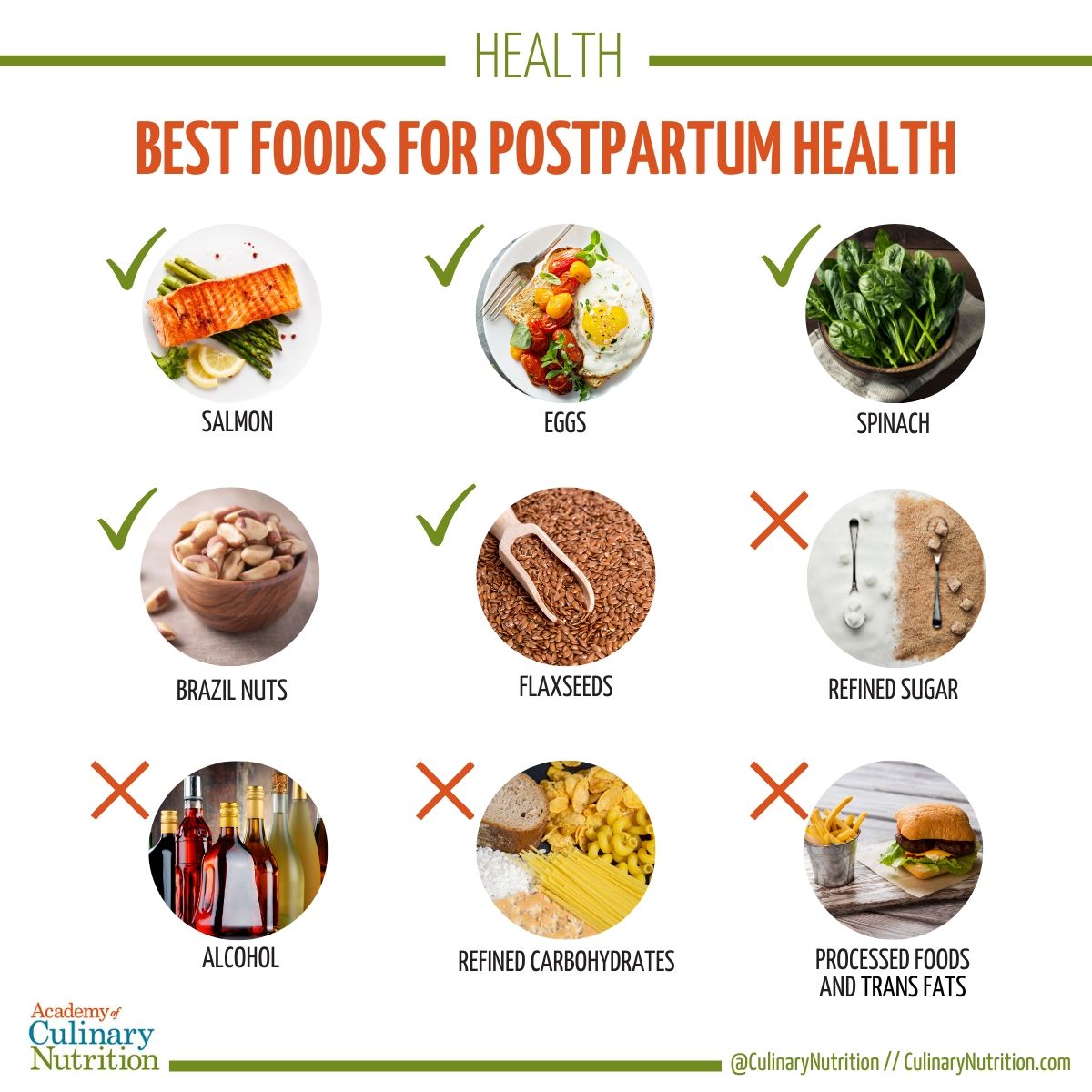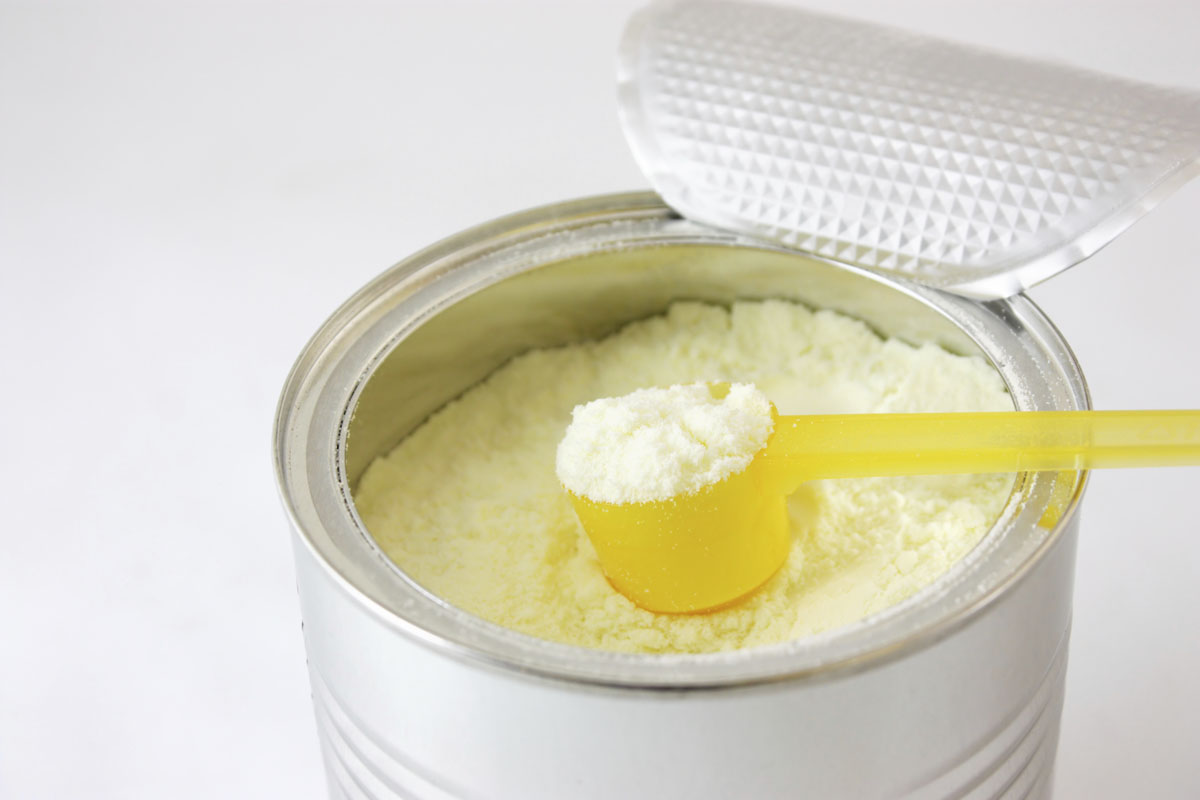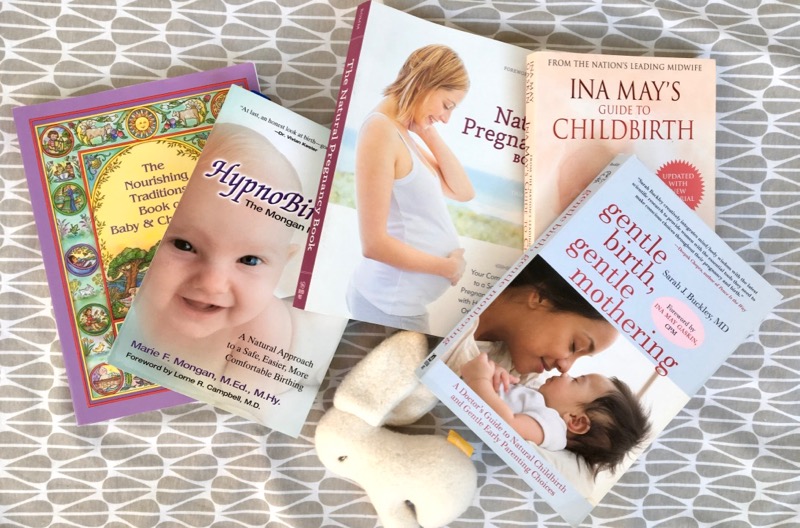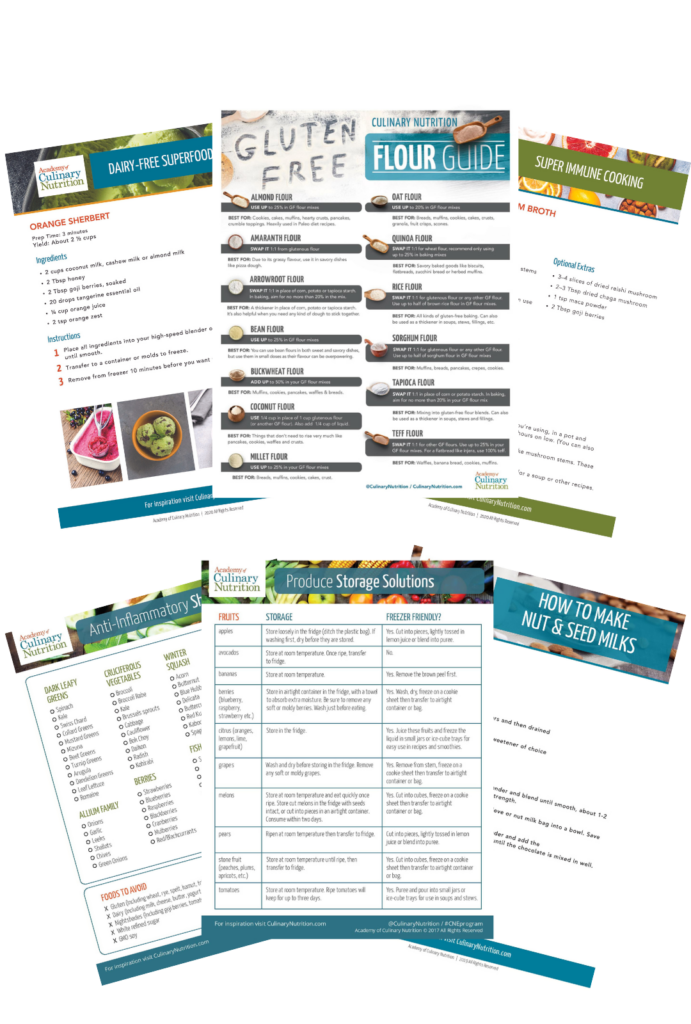Best Foods For Postpartum Health

Carrying a baby is an unexplainable experience! The kicks, flutters, and even hiccups can bring a mother to tears in anticipation of the beautiful bundle of joy that will soon arrive. A common phrase for an expecting mother is that she is “eating for two.” Although this inaccurate phrase is often an excuse for mothers to eat excessive amounts of unhealthy foods, it does speak truth at the importance and impact that food can have on baby and mom. It is this food during pregnancy that will become the building blocks of nutrition during the postpartum phase, and these best foods for postpartum health are a great place to start.
Motherhood is challenging to say the least and, although all ages have their own challenges, the newborn stage seems to tax a mother’s physical and emotional body more than any other stage. Between breastfeeding, lack of sleep and hormonal fluctuations, bringing home a newborn is hard! Fatigue, anxiety, depression and many other feelings can easily slip in during this time. A huge contributing factor to a mother’s postpartum health is the food and nutrients she consumes during pregnancy.
best foods for postpartum health
By filling up on the optimal, nutrient-dense foods during pregnancy, a mom can feel more confident that her transition to motherhood will be a lot smoother than someone who “ate for two” with processed and packaged foods. When a mother is lacking key nutrients during her postpartum experience, depression and anxiety can soon become an issue. With postpartum depression becoming extremely prevalent in our society, it is so important for an expecting and new mom to pay attention to what she eats.
Below you will find the top five foods to consume during pregnancy and postpartum to help prevent postpartum depression as well as key foods to avoid. What a mother does proactively will directly impact her experience after baby, and every mom wants to enjoy this stage as much as she can!
If you or someone you know is expecting or a new mom, adding these best foods for postpartum health into the diet can help boost energy levels, improve the immune system, decrease mood swings, and reduce any other symptoms that may be present.
Salmon
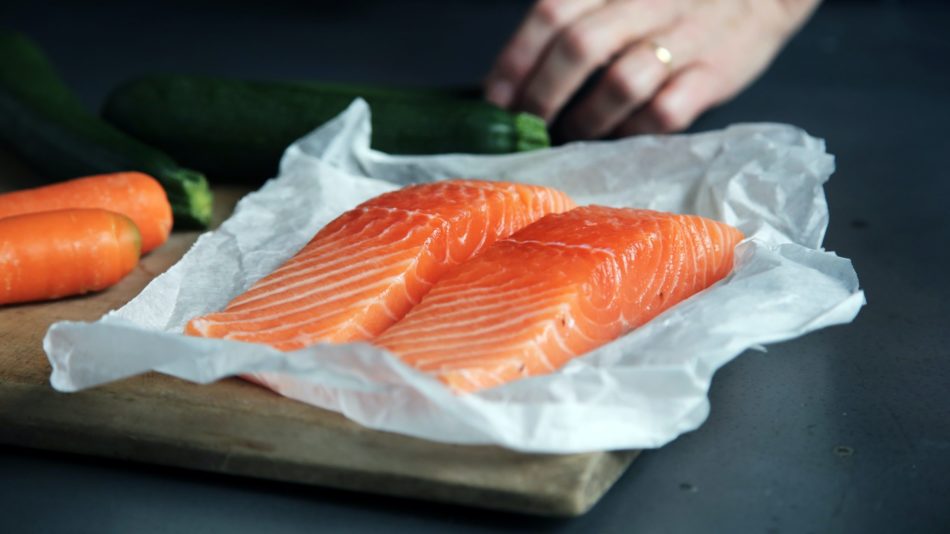
Photo: Caroline Attwood on Unsplash
Salmon is by far one of the best healing foods for postpartum health. It’s extremely high in anti-inflammatory omega-3 fats, energy-boosting iron, and the immune-enhancing antioxidant selenium. Salmon also contains high amounts of Vitamin D, which plays a large role in our immune function, bone health, and hormone production. Studies have found that women with low Vitamin D levels reported higher levels of postpartum depression (PPD) symptoms.
Eggs
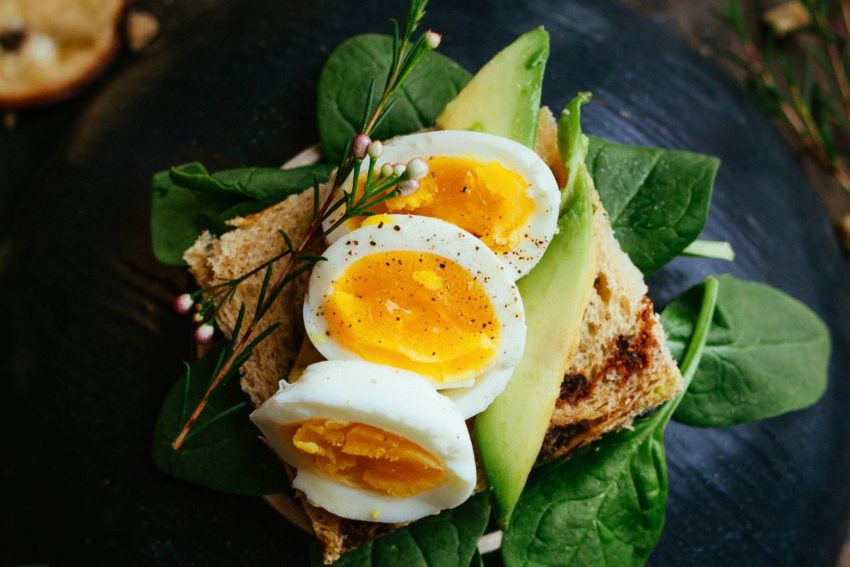
Photo: Joseph Gonzalez on Unsplash
Despite all the conflicting information about the health status of eggs over the years, this easy breakfast meal is one of the best foods for postpartum health. Eggs are a wonderful source of Vitamin D, riboflavin, and zinc. Riboflavin helps our bodies produce energy. A study found that moderate consumption of riboflavin was protective against PPD and helped decrease women’s overall fatigue.
Eggs are also a dense source of protein, which is essential for growth and repair, as well as choline and lecithin – both of these are key for brain development and supporting the nervous system.
Spinach
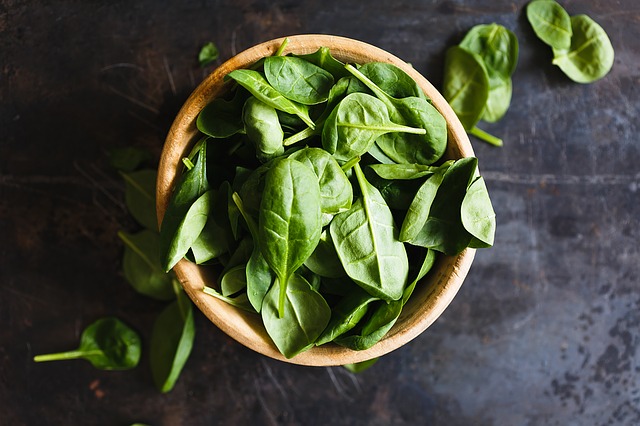
Incorporating spinach is extremely important for pregnant and postpartum women. Spinach contains nutrients that support energy production, immunity and the nervous system, including B vitamins and iron. Iron is a key nutrient in our body that helps with oxygen transportation in the blood and with producing energy in our cells. In a study done on 1200 women, postpartum anemia was significantly associated with PPD risk.
If you don’t like spinach, there are plenty of other dark leafy greens to choose from and they all have a similar nutrient profile.
Brazil Nuts
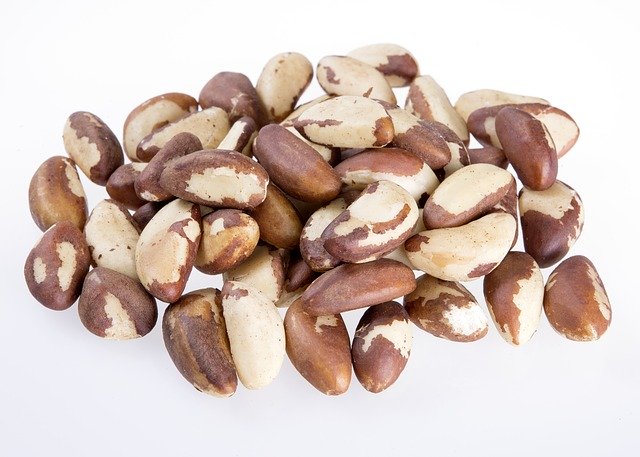
Photo: Michael Wedermann from Pixabay
Brazil nuts contain an important nutrient – selenium. Selenium is a mineral that is important for decreasing inflammation and increasing the body’s immune function. In a study done on postpartum women, subjects consuming a high selenium diet reported less mood disturbances than those consuming a low selenium diet. Being able to stabilize mood with a small handful of Brazil nuts each day is an easy thing to incorporate for a new mom (they’re perfect for one-handed eating!
You can also use Brazil nuts to make a fantastic nut milk or nut butter.
Flaxseeds
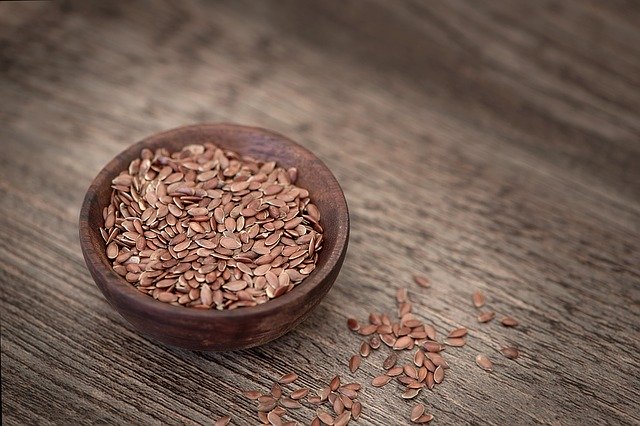
Photo: Pezibear from Pixabay
Flaxseeds can easily be added to smoothies, oatmeal, smoothie bowls, gluten-free crackers or elixirs to provide women with a large source of omega-3 fatty acids. Omega-3 fatty acids, specifically DHA and EPA, are extremely important brain nutrients. Studies have shown that decreased brain DHA is a significant factor in the development of PPD. Other omega-3-rich foods include walnuts, sardines, and salmon. Flax is also key for hormone balance.
5 foods to avoid for postpartum health
It can be challenging at times to eat a variety of nutrient-rich foods due to pregnancy cravings or food aversions. Lack of sleep or time during the postpartum period plays a role, too. The following list of foods should be avoided as often as possible during and after a pregnancy.
Refined Sugar
Sugar increases both brain and body inflammation. Research has shown that brain inflammation is linked to a higher risk of depression. One study showed that depression was 30% higher in people with brain inflammation. It also decreases mood and energy through blood sugar fluctuations and increases our risk of obesity, Type 2 diabetes, and cardiovascular disease.
Instead of white, refined sugars or sugary processed treats, try one of these natural sweeteners instead.
Alcohol
Booze increases an enzyme in our brain called monoamine oxidase A that breaks down our “happy” brain chemicals (serotonin, dopamine, and noradrenaline). Studies show that postpartum depression is strongly correlated with elevated amounts of this enzyme. It also decreases the amount of deep (REM) sleep we get. Sleep deprivation is already prevalent for new moms, so adding alcohol into the mix increases this, which in turn increases the chance of PPD.
If you enjoy the ritual of having a drink, these 20 Best Healthy Mocktails can help!
Refined Carbohydrates
Starchy, refined carbs (chips, pretzels, pastries, soda, and white bread, etc.) boost mood and energy in the short term by quickly raising and dropping our blood sugars. These foods are considered high-glycemic index foods and are shown to increase depression, exacerbate PMS symptoms, and alter mood. In addition, these blood sugar peaks and crashes release our stress hormones. Stress, a contributing factor to PPD, is already high, so PPD incidence increases too.
Processed Foods
Store-bought desserts, fried food, processed meat, refined grains, conventional dairy and the like decrease mood and energy levels through blood sugar fluctuations. They also release stress hormones due to these fluctuations, having the same ultimate impact of refined carbohydrates. Not to mention processed foods are primarily devoid of nutrients that support postpartum health. A study found that people who ate the most processed food had an increased rate of depression.
Trans Fats
Foods that contain trans fats include fast food, popcorn, frozen pizza, creamer, cookies, crackers, and much more (read labels to find them). They increase overall body inflammation which then is indirectly linked to an increased risk of depression (as well as many other chronic diseases).
Pregnancy and postpartum nutrition is vital for a woman to prepare for a newborn and help heal and restore her body. Loading up on nutrient-dense foods and avoiding harmful foods will help each mom enjoy this magical period of motherhood as much as possible.
Header Image: iStock.com/sandsun
Free Resource Library
Enjoy more than 40 downloadable guides, recipes, and resources.















